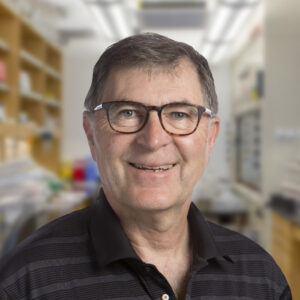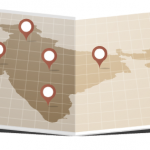In early May, Christopher Goodnow, PhD, the Bill and Patricia Ritchie Foundation Chair, Garvan Institute of Medical Research, Darlinghurst, NSW, Australia, and David Nemazee, PhD, professor in the Department of Immunology and Microbiology, Scripps Research, La Jolla, Calif., were presented the Crafoord Prize in Polyarthritis 2025 by H.M. King Carl XVI Gustaf of Sweden. The prize is awarded in partnership between the Royal Swedish Academy of Sciences and the Crafoord Foundation in Lund, Sweden, and spotlights a different scientific discipline every year. Drs. Goodnow and Nemazee will share the prize of 6 million Swedish kronor and are being recognized for their pioneering discoveries elucidating the mechanisms for B cell tolerance, which have paved the way for new treatments for patients with severe autoimmune diseases, including rheumatoid arthritis and lupus.
The two were working independently of each other at a time when many in the field were skeptical about the role of B cell tolerance in autoimmune disease. Other pioneers, such as the late Macfarlane Burnet, the late William O. Weigle, the late Norman R. Klinman and Gustav Nossal, had done experiments showing that B cell tolerance was involved in the autoimmune response. The problem of studying tolerance, notes Dr. Nemazee, was the low frequency of B cells specific for any particular antigen, which prevented researchers from obtaining a clear answer about its extent or the effect on autoimmunity. As transgenic mouse technology matured throughout the 1980s, both researchers reasoned that this technology, which entails inserting B cell receptor genes into the mouse germ line, might be a way to simplify the repertoire to obtain a clear answer about B cell tolerance.
Dr. Nemazee, then at the Basel Institute, notes that “it was the right time to take advantage of that technology.” He spent time learning to clone genes in collaboration with molecular biologists at the Basel Institute, and in collaboration with the embryologist Kurt Bürki, then at Sandoz, making anti-MHC specific B cell transgenic mice which, when compared with a control strain of mice, yielded the confirmation of B cell tolerance. Located in Australia and working with a Sydney-based researcher trained at one of the world’s preeminent laboratories, Dr. Goodnow employed the same technology, settling on a different protein antigen: hen egg lysosome, aiming to obtain a demonstration of B cell tolerance that was generalizable.
Further experiments built on the results of both, and at one point, says Dr. Goodnow, “it became apparent that the results from both of our experiments were two sides of the same coin.” The chair of the Crafoord Prize Committee, Olle Kämpe, noted that the work of Drs. Nemazee and Goodnow “has given us a new and detailed understanding of the mechanisms that normally prevent faulty B cells from attacking tissues in the body, and explaining why most of us are not affected by autoimmune disease.”





